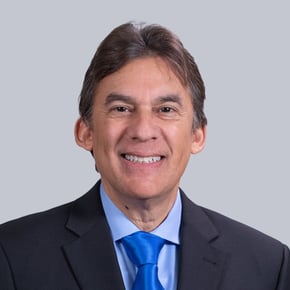In 2023, the International Energy Agency (IEA) reported that fossil fuel demand is expected to peak before 2030, reducing their share in global energy supply from 80% to 73%. However, even with this decline, high fossil fuel demand will still make it challenging to meet global climate goals. It is clear there is an urgent need for cost-effective solutions like nuclear energy that can provide clean, reliable power to the world.
Scientific literature on net zero modeling yields strong evidence that nuclear power generation must significantly increase to meet growing energy needs. In 2022 the world experienced the effects of the start of the war in Ukraine with prices for natural gas, oil, and coal reaching record highs. Governments committed over $500 billion in an effort to shield consumers from price increases, but the repercussions rippled through local economies, particularly affecting the poorest consumers.
For the first time since the IEA started tracking it, the total number of people worldwide without access to electricity has started to rise. Roughly 75 million people who recently gained access to electricity risk losing the ability to pay for it, and almost 100 million people may be forced to rely on sources like firewood for heating and cooking — a significant hazard to lung health.
At the same time, financial institutions are less likely to lend the capital needed to transform energy systems in emerging and developing countries which are projected to have rapid growth in energy demand. Despite this projected growth, the total investment in clean energy each year has remained flat since 2015.
With temperatures forecasted to reach 120 degrees Fahrenheit in extreme heat belts, demand for cooling in developing economies is slated to rise by 2,800 terawatt hours in 2050 — the equivalent of adding a second European Union to the current electricity demand. To limit global temperature increases to 1.5°C by 2050 while meeting energy demands, 24 gigawatts of nuclear capacity must be added each year — four times more per year than has been deployed in the past. Nuclear power generation must be more than doubled for this goal to be met.
Without financial assistance, it is often not possible for developing countries to invest in first-of-a-kind technologies. Economically stable nations must develop and implement these technologies to lower the price by establishing a primed supply chain and economies of scale. The skilled workforce, exports, and international collaboration that comes from that innovation can, in turn, help facilitate commercialization for first-movers.
By 2030, every dollar spent on fossil fuels needs to be outmatched by $5 on clean energy supply and another $4 on efficiency and end-uses to reach net zero. While a challenging undertaking, the cost of simply relying on current policies would be much higher. Coastal disaster relief, flood insurance, and crop insurance could cost the U.S. government between $25 billion and $128 billion each year by 2050, according to one of the world’s largest insurance companies. Globally, the price tag could reach $23 trillion, before even taking into account the toll on humanity.
Gaining access to safe, carbon-free energy is a great challenge for a large number of communities — a challenge that inspired me to start NuScale and design the first and only small modular reactor to receive design certification from the U.S. Nuclear Regulatory Commission. NuScale’s SMR technology is now a near-term deployable solution to deliver clean baseload power to regions in need of electricity, desalination, and process heat applications.
As the world faces an increased frequency of severe weather events due to climate change, multi-module plants offer black start and island mode capabilities to provide “first responder power” to help restore the grid. The load following capability of these plants can also help stabilize and balance power grids dominated by intermittent renewable energy sources. Communities and industries that deploy NuScale's SMR technology have the potential to become pioneers of exponential decarbonization strategies and break exciting new ground on the frontier of modernized energy infrastructure.
The deployment of clean, reliable power must be quickly accelerated if we are to reach net zero within a reasonable timeframe and meet the growing energy needs of the developing world. Advanced nuclear energy will indeed be a significant piece of this puzzle.
Note: This post was originally published in February 2023 and has been updated with more current information.


